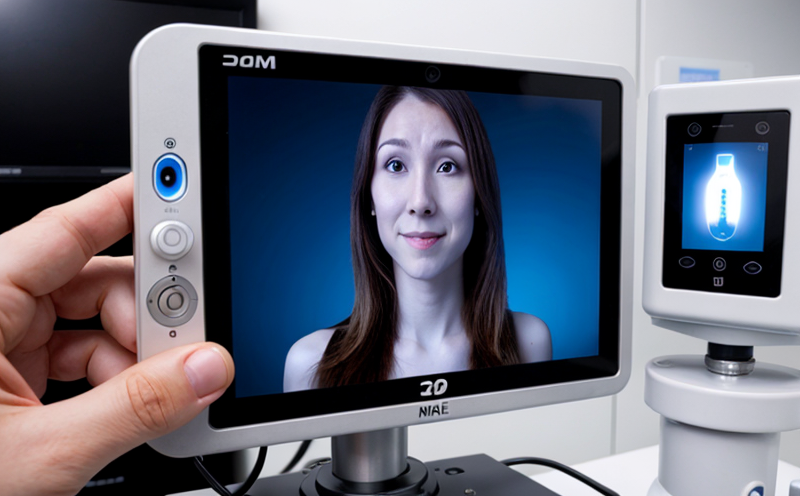ISO 14708-4 Implantable Defibrillator Device Testing
The ISO 14708-4 standard outlines comprehensive testing requirements specifically designed for implantable defibrillator (ID) devices. These devices are life-saving medical instruments used to monitor and treat patients suffering from arrhythmias, especially those at risk of sudden cardiac arrest. The standard ensures that the ID is safe, effective, and reliable in its intended use.
The testing protocol encompasses a multitude of parameters including electrical safety, biocompatibility, mechanical performance, and functional integrity under various conditions such as battery charging, defibrillation, and pacing. Compliance with this standard is crucial for medical device manufacturers to ensure their products meet the stringent requirements set by regulatory bodies worldwide.
Our laboratory adheres strictly to ISO 14708-4 guidelines, ensuring that every test conducted on implantable defibrillator devices meets or exceeds the specified criteria. Our team of experts employs state-of-the-art equipment and follows rigorous protocols to deliver accurate results. The testing process involves multiple stages, from initial electrical safety checks to functional performance under simulated conditions.
One of the key aspects of ISO 14708-4 is the evaluation of biocompatibility, which includes assessing how the device interacts with bodily fluids and tissues without causing adverse effects. This is critical given that implantable defibrillators are in direct contact with the patient's body for extended periods.
The mechanical performance testing evaluates the durability and reliability of the ID under various conditions such as bending, twisting, and compression. These tests ensure that the device can withstand the physical stresses it may encounter during its intended use without compromising its functionality or integrity.
Functional performance testing is another critical component of ISO 14708-4. This involves simulating real-world scenarios to assess how well the defibrillator performs under different conditions, including battery charging, defibrillation shocks, and pacing functions. The results of these tests are essential for ensuring that the device operates safely and effectively in clinical settings.
The testing process also includes environmental stress testing, which evaluates the ID's performance under extreme temperature and humidity conditions. This ensures that the device remains functional even in challenging environments encountered during storage or transport.
Our laboratory uses cutting-edge equipment to perform these tests, ensuring accuracy and reliability of results. We employ a team of highly skilled engineers who are experts in medical device testing and regulation compliance. Their expertise is crucial in interpreting test results accurately and providing actionable insights to our clients.
The reporting process is meticulous and detailed, ensuring that clients receive comprehensive reports outlining all aspects of the testing conducted. This includes electrical safety checks, biocompatibility assessments, mechanical performance evaluations, functional performance tests, and environmental stress testing. Each report is tailored to meet the specific needs of our clients, providing them with a clear understanding of the ID's performance and compliance status.
By adhering strictly to ISO 14708-4 guidelines, we ensure that every test conducted on implantable defibrillator devices meets or exceeds the specified criteria. This commitment to quality and regulatory compliance is essential for medical device manufacturers to meet the stringent requirements set by regulatory bodies worldwide.
Benefits
Compliance with ISO 14708-4 ensures that implantable defibrillators are safe, effective, and reliable in their intended use. This compliance is crucial for medical device manufacturers to ensure their products meet the stringent requirements set by regulatory bodies worldwide.
- Enhances product safety and reliability
- Achieves regulatory compliance and market access
- Reduces risks associated with potential failures or malfunctions
- Improves patient outcomes through consistent performance standards
- Promotes trust in medical device quality and integrity
The benefits of ISO 14708-4 compliance extend beyond regulatory requirements. It also enhances the reputation of manufacturers, ensuring that their products are trusted by healthcare providers and patients alike.
Why Choose This Test
- Ensures Safety: ISO 14708-4 tests ensure that implantable defibrillators are safe for use in critical medical procedures.
- Regulatory Compliance: Compliance with this standard ensures market access and regulatory approval.
- Patient Trust: Reliable testing builds trust among healthcare providers and patients, leading to better outcomes.
- Quality Assurance: Rigorous testing protocols ensure consistent quality across all batches of devices.
- Innovation Support: Compliance with ISO 14708-4 can help accelerate the development process by ensuring early identification of potential issues.
The comprehensive nature of ISO 14708-4 testing provides a robust framework for medical device manufacturers to ensure their products meet the highest standards of safety and efficacy. By choosing this test, manufacturers demonstrate their commitment to patient safety and regulatory compliance.
Use Cases and Application Examples
The ISO 14708-4 standard is widely applicable in various medical devices that require stringent electrical safety, biocompatibility, and mechanical performance. Some of the key use cases include:
- Atrial Fibrillation Therapy Devices: These devices are used to treat atrial fibrillation, a common heart condition characterized by irregular and often rapid heart rate.
- Ventricular Tachycardia Treatment Devices: These devices help manage ventricular tachycardia, which is an abnormally fast heart rhythm that can lead to sudden cardiac arrest.
- Pacemakers: Pacemakers are used to regulate the heartbeat for patients with bradycardia or other arrhythmias.
The testing protocol outlined in ISO 14708-4 ensures that these devices can be safely and effectively implanted into patients, providing them with critical life-saving care. The standard's emphasis on biocompatibility and electrical safety is particularly important for implantable medical devices where prolonged contact with the body is necessary.
Our laboratory has extensive experience in testing a wide range of implantable defibrillator devices, including those used in atrial fibrillation therapy, ventricular tachycardia treatment, and pacemaker applications. Our expertise ensures that we can provide accurate and reliable test results, helping manufacturers meet their compliance requirements.





